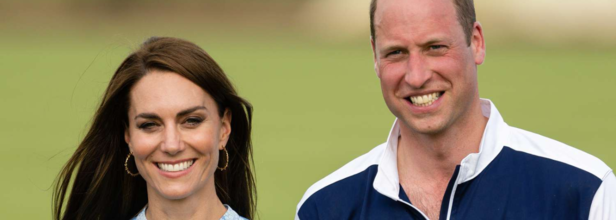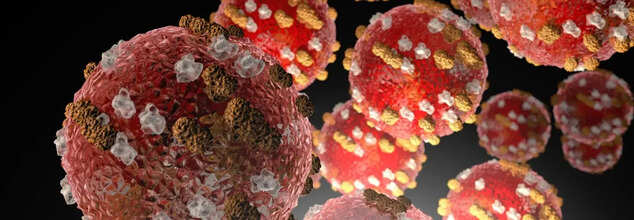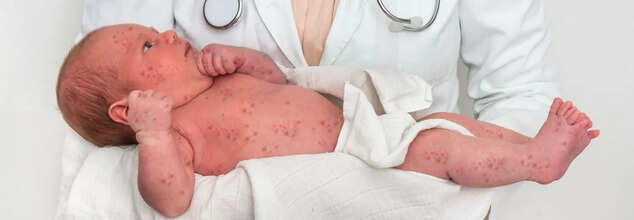- Health Conditions A-Z
- Health & Wellness
- Nutrition
- Fitness
- Health News
- Ayurveda
- Videos
- Medicine A-Z
- Parenting
- Web Stories

Prince William And Princess Kate To Launch A Mental Health Support Program by 2025
The Prince and Princess of Wales are continuing to work for and around mental health. On December 21, they announced a new collaboration with a local mental health charity, known as the Norfolk and Waveney Mind that could "boost mental health support for the rural and farming communities of Northwest Norfolk," said the Kensington Palace in a statement.
Who does it cater to?
The couple is co-funding a program that will help and extend mental health support to the communities in the areas, also including those who live on and work for the royal family's Sandringham Estate, which is almost nearly half of the Northwest Norfolk population. The program will also include face-to-face counseling and drop-in sessions for different member of the community. These different groups will include parent, toddler groups, menopause groups, and men's group.
Why the different groups?
The different groups allows different approaches towards the issues. While a therapist's job is to listen and help the person find solution on their own through the therapists guidance, ensuring that separate groups are divided helps with a specific approach. For instance a trauma specialist can help you understand and process your traumatic experiences and manage symptoms like anxiety, depression and PTSD. However, if you are not dealing with a trauma and you do not have any other therapist available, the approach may not suit your need. Similarly, a family specialist can help you to create a safe space, draw your boundaries within the family and being unable to find the one with an approach that suits your need, may delay your healing.
The groups are also made for the same reasons. For instance menopause groups will have women experiencing changes in their bodies, their moods, their equation with their partner. In this case a therapist who knows how to deal with such changes is more beneficial, than any therapist, with an expertise that does not suit the need.
ALSO READ: First Time In Therapy? Here Is What To Expect From Your Session
Prince and Princess' Pledge
Earlier this year, Prince William had pledged to provide mental health support for tenant farmers on the Duchy of Cornwall Estate. As per reports and the Palace, there is a "strong need for further mental health support for rural and farming communities across the United Kingdom." The palace also added: "Rural isolation and poor mental health are still widespread in across the UK, and sadly, one farmer loses their battle with mental health each week.”
When will the program go live?
The Wales; program will launch in 2025 and go on for at least two years. The interim CEO, Sonja Chilver says: "We are all too aware of the specific mental health challenges faced by people in rural settings, particularly those in the farming community. We’re delighted to be working with The Prince and Princess of Wales, who know our Northwest Norfolk communities well, and we are keen to see the difference that this pilot will make to local people’s mental health.”
“Our innovative new partnership will drive proactive outreach and preventative measures to the whole community and form a vital step in better protecting the wellbeing of local people. If successful, it could be used as an example and replicated in other rural estates and communities across the U.K,” Chilvers continues.
“Delivering these new services is part of an exciting series of developments for our charity in Northwest Norfolk, as we also prepare to launch our new-look Talking Therapies service from our REST Heacham site, opening up free counselling for people experiencing anxiety and depression.”

Credits: Canva
World Immunization Week: India Pushes To Eliminate Measles And Rubella By 2026
As a part of World Immunization Week, which is observed from April 24 to 30, to promote the life-saving power of immunization, notes the World Health Organization (WHO), India has launched a week-long campaign to vaccinate 100% of children against measles and rubella. This is a move described as crucial to country's goal of eliminating the two viral diseases by 2026, noted Union Health Minister JP Nadda.
As per WHO, this week aims to promote the power of immunization to protect people of all ages against vaccine-preventable diseases. Vaccines are one of humanity's greatest achievements, notes WHO. Since 1974, they have saved 150 million lives.
As per India's aim, Nadda suggests that health workers must not only ensure complete vaccination overage, but also remain vigilant through robust disease surveillance. “Measles is very contagious. Even a single case must be treated as a warning signal. We have to cover immunity gaps and ensure no child is left behind,” he said.
As per WHO, India has reported 4,388 cases of measles and 527 cases of rubella so fat this year.
What Are Measles And Rubella?
Measles is a highly contagious viral infection marked by symptoms such as high fever, rash, cough, red eyes, muscle pain, and headache. Though often seen as a childhood illness, measles can lead to severe complications, including pneumonia, brain swelling (encephalitis), and even death, particularly in malnourished children and those with weakened immune systems.
Rubella, caused by a different virus, typically results in milder symptoms in children and adults. However, it poses a grave risk to pregnant women. Infection during pregnancy, particularly in the first trimester, can cause miscarriage, stillbirth, or congenital rubella syndrome (CRS) — a condition leading to serious birth defects like heart problems, deafness, and developmental delays. According to WHO, rubella control is essential for reducing infant mortality and morbidity.
History of Measles and Rubella Vaccination In India
India has a long battle with measles, which had accounted for a significant portion of global measle deaths. In order to tackle this, the country introduced measles vaccination in 1985, under the Universal Immunisation Programme. However, rubella vaccination lagged behind until the Measles-Rubella (MR) vaccination campaign was launched in 2017.
This massive drive aimed to immunize 410 million children between 9 months and 15 years of age, marking one of the largest vaccination campaigns in the world, according to the Ministry of Health and Family Welfare. Post-campaign, the MR vaccine was incorporated into India’s routine immunization schedule, with two doses given between 9–12 months and 16–24 months of age.
Since measles and rubella are both highly contagious, health authorities say that achieving very high vaccination coverage — over 95% — is critical for creating herd immunity and stopping outbreaks.
Is India Close To Its Goal?
Health Ministry data shows promising progress: in 2024–25, 93.7% of children received the first MR vaccine dose, while 92.2% received the second. However, to achieve disease elimination, India needs to push these numbers above 95% consistently across all regions.
Highlighting the importance of full coverage, Nadda called upon public representatives to actively support the campaign and spread awareness, particularly in hard-to-reach areas.
Despite progress, India faced a significant measles outbreak in 2023. The country was among 57 globally that saw major outbreaks after routine immunization services were disrupted during the Covid-19 pandemic. In 2023 alone, India reported 68,794 cases of measles and 2,930 cases of rubella.
Responding to the surge, the government intensified supplementary immunization activities, targeting areas where outbreaks occurred. The impact is visible: measles cases dropped by 73% and rubella by 17% in 2024 compared to the previous year.
With sustained efforts, India is now on a strong path towards achieving measles and rubella elimination by 2026.
Note: The data is taken from World Health Organization and Ministry of Health and Family Welfare, Government of India.

Credits: Canva
A New Blood Test Predicts Fatty Liver Disease 16 Years Ahead Of Diagnosis
Fatty liver disease, now called metabolic dysfunction-associated steatotic liver disease (MASLD), happens when extra fat builds up in liver cells without alcohol being the cause. Normally, the liver contains some fat, but if more than 5–10% of the liver’s weight is fat, it is considered a fatty liver. In its advanced stage, MASLD can develop into metabolic dysfunction-associated steatohepatitis (MASH), causing swelling and serious damage to the liver. Alarmingly, MASLD affects about 100 million people in the United States, including a growing number of children.
The disease often develops silently. Many people do not experience symptoms early on, but if it worsens, signs like fatigue, abdominal pain, jaundice, swelling, and even mental confusion may occur. Risk factors include obesity, diabetes, high cholesterol, rapid weight loss, poor eating habits, and certain medications.
A Breakthrough in Early Prediction
A new study offers hope for earlier detection. Researchers, led by Dr. Shiyi Yu from Guangdong Provincial People's Hospital in China, have developed a blood test that looks for five specific plasma proteins to predict MASLD years before symptoms show up. The findings are set to be presented at the Digestive Diseases Week meeting in San Diego.
The test was shown to be 84% accurate at predicting fatty liver disease five years in advance and 76% accurate at predicting it 16 years ahead of diagnosis. When additional factors like body mass index (BMI) and daily exercise habits were added, the prediction accuracy improved even more—over 90% at five years and 82% at 16 years.
This model was tested on two different groups—participants from the UK Biobank (over 50,000 people) and a separate group in China—showing promising results across diverse populations.
Why Early Detection Matters
Fatty liver disease not only damages the liver but also increases the risk of early death—primarily from cardiovascular diseases (CVD) rather than liver failure itself. The connection between MASLD and heart disease is strong, as both share causes like high blood sugar, high triglycerides, and obesity. That is why early diagnosis is crucial—not just to protect the liver, but also to manage the risk of heart disease.
Early identification through a simple blood test could lead to earlier lifestyle changes, medical monitoring, and interventions that can prevent serious complications like cirrhosis or heart attacks.
What You Can Do
Currently, there is no approved medication for MASLD. Treatment mainly involves:
- Maintaining a healthy weight through diet and exercise
- Controlling diabetes and cholesterol levels
- Avoiding alcohol
- Following medical advice if already diagnosed
Preventive steps include eating a balanced diet rich in lean proteins, fruits, vegetables, whole grains, and healthy oils, being physically active, and avoiding unnecessary medications.
Although the findings are considered preliminary until published in a peer-reviewed journal, this research marks a major advancement. It shows that a simple blood test could soon help millions of people know their risk decades in advance, giving them a chance to change the course of the disease before it's too late.

Credits: Canva
Why Is There A Growing Misinformation On Measles?
As the United States experiences the worst measles outbreak in over a decade with nearly 900 reported cases across 29 states, including deaths of two children, public understanding of the disease and its prevention strategy have been highly misunderstood due to political divide. The outbreak began in West Texas and has now spread widely. This highlights not only the persistent threat of measles but also the growing influence of vaccine misinformation, which have been fueled by political figures.
Why Is There A Resurgence of Preventable Diseases?
Measles, a highly contagious viral disease, had been largely controlled in the U.S. thanks to the widespread use of the measles, mumps, and rubella (MMR) vaccine. However, gaps in vaccination coverage have led to a resurgence. The current outbreak, centered in Texas but extending to almost 30 states, has alarmed public health officials. Two young girls who were otherwise healthy have died as a result of measles complications.
The disease is known for its rapid transmission. A single case can lead to significant spread if vaccination rates in a community fall below the 95% threshold needed for herd immunity. Children are particularly vulnerable; although the first dose of the MMR vaccine is typically administered at 12 months, increased parental concern has led some to seek earlier vaccination during the outbreak.
The Politics Of Vaccine
As per a new survey by KKF, a nonprofit health information group, only one-third of Republican-leaning parents were aware of the current measles outbreak. This was in comparison with the two-thirds of aware Democratic parents. The survey also found and 1 in 5 Republicans believes that measles vaccine is more dangerous than the diseases itself, this is double the rate of Democrats.
These gaps in perception are not new but are deepening. About 35% of Republicans surveyed believe the discredited theory that the MMR vaccine is linked to autism—a belief held by just 10% of Democrats. While belief in this theory has not increased significantly, public awareness of the claim has grown, reflecting the impact of persistent misinformation.
Adding to the confusion is Health and Human Services Secretary Robert F. Kennedy Jr., who has long been associated with anti-vaccine rhetoric. Since taking office, he has supported an investigation into environmental contributors to autism and has floated unproven theories, such as vitamin A being a preventative measure against measles. These statements, while not outright opposing vaccines, muddy public understanding and can discourage immunization.
At a time when clear public health messaging is critical, conflicting remarks from top officials are exacerbating distrust. Advocacy organizations like Immunize.org and The Immunization Partnership warn that such mixed messaging, especially when it originates from high-ranking leaders, undermines public confidence in vaccines.
In southern states like Texas, Louisiana, Arkansas, and Oklahoma, anti-vaccine activism has gained traction within state legislatures. Studies show that even lawmakers with medical backgrounds have not always supported public health measures, often influenced by political considerations and public pressure. Testimony from vaccine opponents at legislative hearings further amplifies misinformation, making it more difficult for facts to gain traction.
Meanwhile, healthcare providers are seeing the consequences firsthand. In California, where a 2014–15 outbreak began at Disneyland, pediatricians have treated severely ill children and taken stricter stances on accepting unvaccinated patients. These outbreaks serve as a stark reminder that the threat of measles is real and recurring.
© 2024 Bennett, Coleman & Company Limited

